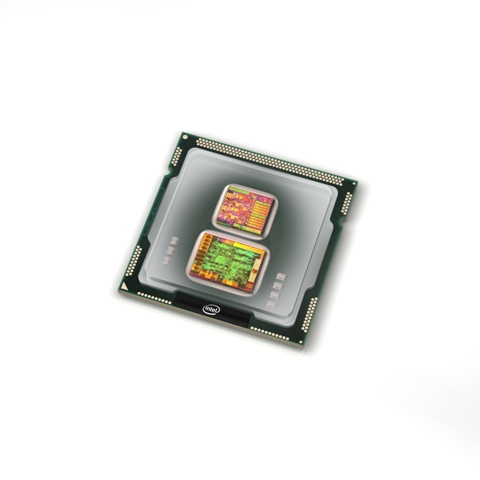As he looked for a new notebook recently, JOHN HARRIS discovered that even chip giant Intel believes that the confusion caused by computer jargon is a problem.

It’s reassuring to learn that computer companies sometimes find tech jargon as bewildering as us, their customers.
Back in the day, understanding the bits used to build a personal computer (PC) was reasonably easy.
The microprocessor – also called a chip or CPU (Central Processing Unit) – is the “brain” of the PC, receiving, sorting and sending a stream of instructions that turn elaborate circuitry into a useful tool.
Intel, the architect of microprocessor technology, set the pace and other chipmakers followed.
Each new generation of chips had a higher number – 80286, 80386, 80486 – with the speed of each generation of chips measured by its megahertz rating.
Then came the 1993 launch of the Pentium chip and the wheels fell off this convenient convention.
The name Pentium – as with the Pentagon, derived from the Greek word for “five” – was intended to denote Intel’s 80586 generation of chips. Intel ditched the five-digit descriptions because it couldn’t trademark numbers.
Confusingly, the name Pentium has existed ever since, although the power and performance of chip technology has increased inexorably every year, along with the arrival of other obtuse names such as Celeron and Xeon.
Adding mystery to this mix is the advent of multi-core microprocessor technology, which allow chips to “process” more than one instruction at a time. This has led to names such as Core 2 Duo, Core 2 Quad and Core 2 Extreme.
Even Intel recognises it has all got extremely tricky for customers to understand.
Recently, Intel’s National Marketing Manager Kate Burleigh admitted as much during an interview about who’s who in the microprocessor zoo. “Intel knows it is a problem,” she said.
“We’ve moved to simplify the branding because it was too hard for people to keep up with. We now have three main product names - Core i3, Core i5 and Core i7 – in which Core i3 is the current entry-level chip and Core i7 will always signify the best.
“In 2011, we’re going to launch a new range of products with the same branding, but they will be designated as the 2011 models, so the year will differentiate the latest. I think it’s a good strategy that will eliminate a lot of the confusion.”
Sadly, while these new names simplify the Intel marketing message, some old names will continue to muddy the waters a bit.
Pentium processors are still found in computers costing less than $700, as are Core2 Duo chips, although the latter are being phased out. Likewise, Celeron will retain its place at the budget end of the buying line.
However, if you want the latest and greatest chip technology, look to Core i5 and Core i7 chips, which include Turbo Boost technology.
Like the inverter on an air-conditioner, Turbo Boost throttles back the chip if you don’t need full power, which extends the running time for a battery-powered notebook.
For me, though, the best thing about this chip-branding simplification is that I only need to understand it every few years when I buy a new PC. Otherwise, it would still do my brain in.
John Harris is managing director of Impress Media Australia. Email jharris@impress.com.au.
Related News
- Technologies of the future As he enjoys the lifestyle convenience of the IT revolution, JOHN HARRIS reflects on how young people are embracing sustainable technologies of the future. I’m currently in th...
- Digital camera delivers blinding flash of the obvious After finally making the jump to a digital SLR camera, JOHN HARRIS discovers that point-and-click convenience can breed lazy photography. The beauty of digit...
- When a good thing goes bad If good customer service is the key to success in the 21st century, JOHN HARRIS asks why it is so hard to get. I was happy in my relationship with my phone company until I had to s...
- Apple bites Microsoft where it hurts As Apple has overtaken Microsoft as the world's most valuable technology company, JOHN HARRIS examines the dramatic turnaround in fortunes of the Cupertino-based company that was f...












